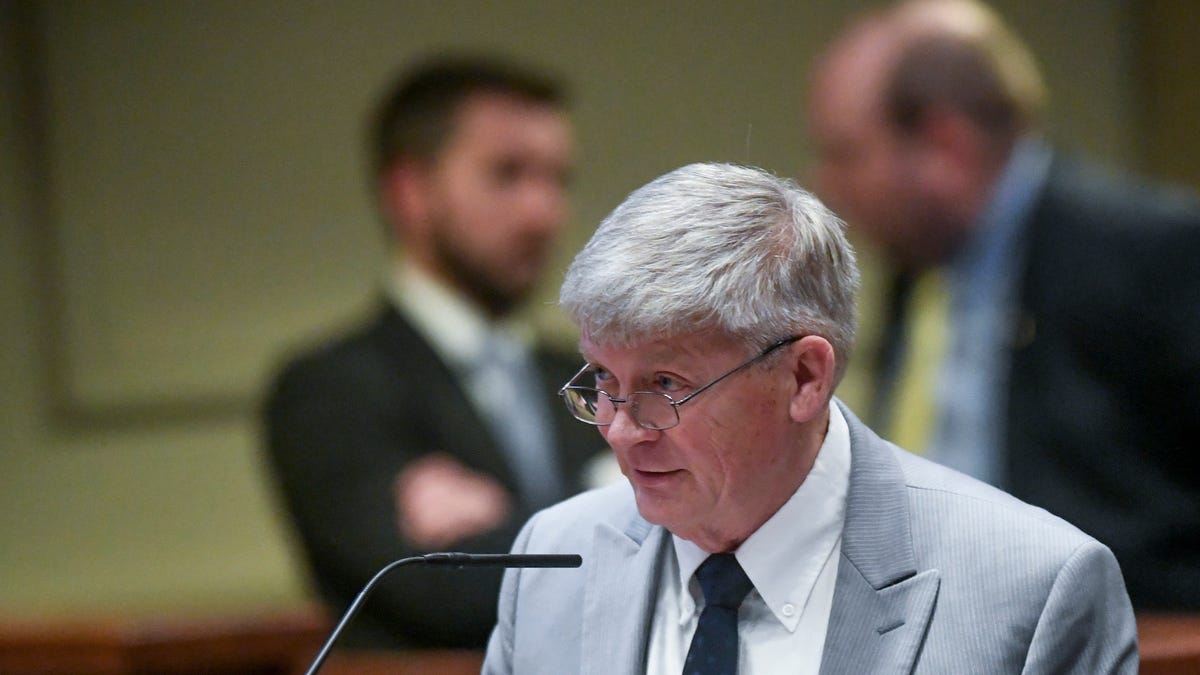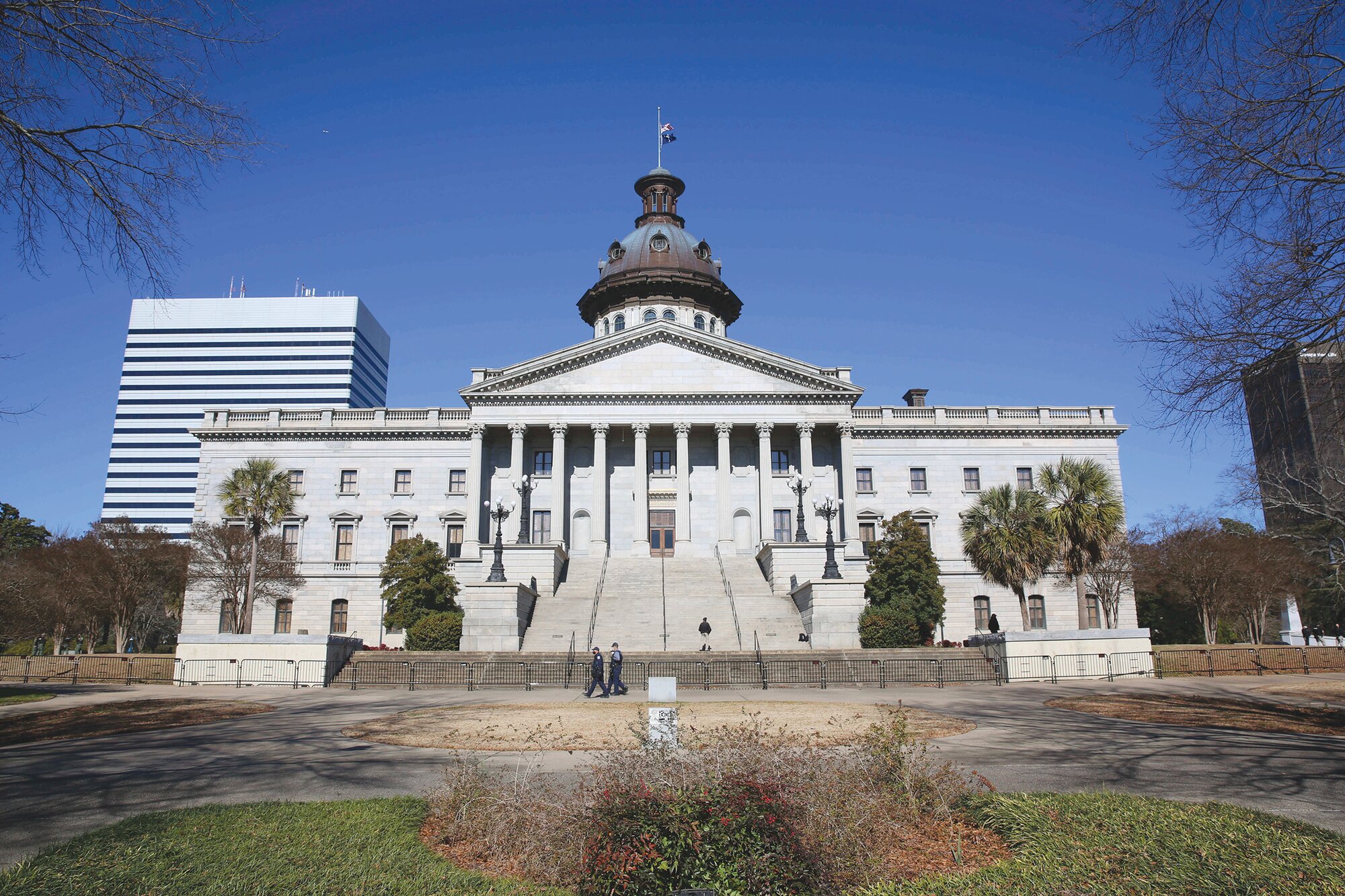Alabama
Opinion | Threat to democracy in Alabama: The tyranny of the minority

Democracy, by its very essence, presupposes rule by the majority with due respect and safeguard for minority rights. The founding architects of the U.S. Constitution harbored deep concerns about “the tyranny of the majority,” crafting counterweights such as the Bill of Rights and an independent judiciary. These mechanisms were designed not to stifle the democratic voice but to ensure that no single faction could trample the varied mosaic of individual rights that underpin the United States.
Yet, here in Alabama, we witness an ironic and troubling inversion of this principle: a tyranny of the minority. A Republican supermajority in our state legislature is aggressively pushing agendas that roll back fundamental rights—women’s rights, parental rights in health and education decisions, and the freedoms tied to speech, diversity, and expression. These laws, often lacking widespread support, appear crafted to cater to a minority whose influence is disproportionately amplified by primary elections.
This minority governance manifests itself in how state-funded institutions are coerced into adhering to a narrowly conservative agenda. From restricting what books are available in schools and libraries to defining who gets to benefit from government financial aid, the legislative actions taken are more about control than genuine governance.
Consider the grim irony in Alabama, where female leadership does not translate to women’s autonomy. Our state, led by women in prominent roles, denies other women the most fundamental rights—those concerning their own bodies and life choices. The imposed definitions of womanhood and the legislative incursions into personal choice paint a chilling picture: women as mere vessels, their rights secondary to those of unborn or even potential lives.
Moreover, the state offers substantial financial support to wealthier families while neglecting essential programs like the Summer EBT, which offers a lifeline to poorer children when schools—often their primary source of meals—are out. The contradiction extends to the moral realm; our leaders readily spout religious virtues yet withhold compassion from those who differ in opinion or lifestyle.
This situation does not merely stem from political differences but signifies a systematic assault on the principles of democracy itself. The shift towards a government that does not reflect the diverse will of its people but rather the fears and biases of a shrinking majority cannot sustain itself without inflicting severe damage on the social and moral fabric of our society.
Progress is indeed not linear, and the battle for human rights, particularly women’s rights, is fraught with setbacks often masked as protective measures for family or tradition. These are not benign concepts when used as tools for political control and human rights violations.
What we are experiencing is not just an erosion of democratic values but an active dismantling of democracy itself, cloaked in the garb of populism. This wave is not just a threat to the diversity and vibrancy of our state but also to the fundamental democratic promise of our nation.
The question that remains for Alabama and for America is this: How can we thrive as a diverse and democratic society if a vocal minority hijacks the liberties enshrined in our foundational documents? The answer lies in recognizing these maneuvers for what they are—a desperate grasp for control—and responding not just with outrage, but with concerted civic action to reclaim the democratic character that is meant to define us.

Alabama
Sculptor unveils model of Helen Keller statue for Alabama State Capitol • Alabama Reflector

A sculptor Tuesday unveiled a working model of a statue of disability rights advocate Helen Keller planned for the grounds of the Alabama State Capitol.
Jay Warren, an Oregon-based sculptor, showed the statue at a meeting of the Women’s Tribute Statue Commission. The life-size monument features Keller sitting on a bench, holding a book written in Braille with one hand while reaching out with the other, as if feeling something.
Warren said he’ll add clay to the foam armature next, allowing details to be fleshed out.
“Next time I have something to show you, it will all be the same color. All the details will be put in the dress and on the book also,” Warren said.
GET THE MORNING HEADLINES DELIVERED TO YOUR INBOX
Warren has designed statues of historical figures around the country, including Rosa Parks; Martin Luther King, Jr.; Congressman John Lewis and Medgar Evers in Mississippi. Warren also designed the Emancipation and Freedom Monument in Virginia.
The commission members said they were impressed by the proposal.
“I mean- wow,” said Rep. Laura Hall, D-Huntsville, who chairs the commission.
“Very inspiring,” said Annie Butrus, a Birmingham artist and member of the commission.
Rev. Agnes Lover, a member of the commission, said that she loved that she could see the Braille as well read the inscription on the other side in the book Keller is holding.
The committee also got an update on the plaque that will go on each statue. The commission is considering the other plaques currently on the James Marion Sims, the John Allan Wyeth and the Jefferson Davis sculptures as well as historical language that has been used to describe both women.
The Rosa Parks statue’s plaque was initially envisioned to have her name along with date of birth and death, but the other statues have at least one sentence describing the individual.
“This is definitely the important piece to get right: the language that will be on both signs needs to take into account all the other language that’s been published,” Butrus said.
The commission last year approved a statue of Parks, which will be installed on the steps of the Alabama State Capitol. The statue has been designed by Georgia-based Julia Knight and is in the final stages of construction. Both Parks and Keller’s statues could go up in Montgomery early next year. The commission is currently reviewing bids for the Keller and Parks statue site development.
The statues are expected to cost about $611,000, according to previous projections. The commission has raised about $700,000 for the statues. The remaining amount will be used for site maintenance.
The Alabama Legislature in 2019 approved the installation of statues of Keller and Parks on the Alabama State Capitol grounds, the first women to be so honored.
Parks’ arrest on a segregated Montgomery bus in 1955 sparked the Montgomery Bus Boycott, considered the beginning of the modern Civil Rights Movement. Keller, a Tuscumbia native who lost her sight and hearing before her second birthday, became a world-renowned author and advocate for the rights of the disabled.
Alabama
At Montgomery rally, Hyundai workers describe difficult working conditions • Alabama Reflector

Workers at Montgomery’s Hyundai plant described difficult working conditions and arbitrary scheduling at a rally Monday evening led by clergy and faith leaders.
The rally came amid a campaign led by the United Auto Workers to unionize the factory and an ongoing vote this week at Mercedes-Benz’s plant in Vance on whether to organize under the UAW.
“We have actually no voice inside of work,” said Gilbert Brooks, a 15-year veteran of the plant who works on machines that take sheet metal and shape them into vehicle parts. “Basically, it is one-sided. Pretty much what Hyundai says goes. They make and break their own rules. Pretty much, you can’t make plans because Hyundai has control basically.”
Brooks, who has been working to unionize the plant since 2014, and several of his colleagues described difficult work conditions, including irregular scheduling.
“If they say we are going to work this Saturday, then they can change it on a dime,” Brooks said. “If they say we don’t have to work, they can change that also. Basically, it is either you do, or you don’t.”
Others pointed to limited bathroom breaks and high temperatures that make it difficult to remain hydrated as they work.
“When I mean extremely hot, it gets so hot in there that you sweat,” said Robert Stozer, another Hyundai plant employee. “Some people have passed out there with the working conditions when it gets hot in the summertime.”
Nearly all those who spoke said they have dealt with health issues as a result of working at the plant. Brooks said he has had operations to address issues with his neck and rotator cuff. Kissy Cox, another Hyundai employee who spoke Monday, said she has had carpal tunnel surgery.
“I got another appointment, at the end of this month, because now my finger — if I close my hand — my middle finger, I have to lift it up with my other hand,” she said. “You have to keep working in the same conditions, with your hands hurting, until you see a doctor.”
Hyundai announced in 2002 that it would open a plant in Montgomery, lured like other auto manufacturers by low labor costs and a large government incentive package ($252.8 million) that included tax abatements, corporate income tax credits and road improvements. The factory opened in 2005.
UAW said in February that 30% of the workers at the Hyundai plant had signed union authorization cards, though it has not provided updates on the numbers since. Employees said they have made steady progress but were waiting to call a vote, and said they have faced push back from management.
“One thing they will do to make it difficult is tell people the plant is going to leave,” Stozer said. “They put all kinds of anti-union stuff on the television, and what the union cannot guarantee, and put all the thoughts into their mind so that they are scared.”
Efforts to form unions have been gathering momentum throughout the South. Volkswagen workers in Tennessee last month voted to organize a union. Mercedes-Benz’s union vote is the first to take place at that plant since it opened in 1997.
The union drives have come under sharp attack from state officials.
Gov. Kay Ivey has called unions “out of state interest groups” and on Monday signed SB 231 sponsored by Sen. Arthur Orr, R-Decatur, which bans companies from receiving economic development incentives if they voluntarily recognize unions.
Another issue the employees cited was retirement.
“Once we leave, we have no insurance, nothing,” Brooks said. “We are just used, washed up, that is it. A 401K is not a pension, and for the work that we have done, that is what we need, something to continue to help us once we leave.”
The event was hosted by Bishop William J. Barber, II of the Poor People’s Campaign and other clergy members.
For roughly an hour Barber spoke of the need to unite all of those who are impoverished. He told of the profits made by Hyundai and how that benefit has not been extended to workers. Barber offered statistics of how impoverished people are in Alabama.
“Two adults have to earn $22 an hour just to have a basic, living wage,” he said. “Working at a minimum wage, you have to work 90 plus hours a week. Forty percent of this workforce makes less than $15 an hour.”
Barber said in an interview after the meeting that unionization would help improve the economic lot of the state, and referenced Alabama’s refusal to enter into Medicaid expansion offered under the Affordable Care Act.
“This state has too much poverty for governors to be fighting against something that is going to raise wages and give people benefits,” he said in an interview after the meeting. “Especially since these same governors denied hundreds of thousands of people health care through the Affordable Care Act.”
Alabama
Alabama Gov. Kay Ivey talks unionization and gambling in Huntsville speech

HUNTSVILLE, Ala. (WAFF) – Governor Kay Ivey spoke in Huntsville on Monday and maintained her stance against auto workers unionizing.
During her speech, Ivey said, “Alabama is not Michigan, Huntsville and Tuscaloosa are not Detroit.”
A rally is set for Monday night in Montgomery to support Hyundai workers who are attempting to join the United Auto Workers union.
She said these unionization efforts could open Alabama plants up to layoffs and even closures.
Ivey also touched on lawmakers’ failed attempt to legalize gambling. She says she was hoping the issues would be on your ballot this fall, but it just wasnt in the cards.
“Gambling, if it comes up we’ll deal with it again,” Ivey said. “My interest in that bill was to give the people the chance to vote and I’m sorry they didnt get that chance.”
Ivey ended her speech touting her efforts to boost education and broadband access across the state.
Click Here to Subscribe on YouTube: Watch the latest WAFF 48 news, sports & weather videos on our YouTube channel!
Copyright 2024 WAFF. All rights reserved.
-

 Politics1 week ago
Politics1 week agoHouse Dems seeking re-election seemingly reverse course, call on Biden to 'bring order to the southern border'
-

 World1 week ago
World1 week agoSpain and Argentina trade jibes in row before visit by President Milei
-

 Politics1 week ago
Politics1 week agoFetterman says anti-Israel campus protests ‘working against peace' in Middle East, not putting hostages first
-

 World1 week ago
World1 week agoGerman socialist candidate attacked before EU elections
-

 News1 week ago
News1 week agoUS man diagnosed with brain damage after allegedly being pushed into lake
-

 World1 week ago
World1 week agoGaza ceasefire talks at crucial stage as Hamas delegation leaves Cairo
-

 Politics1 week ago
Politics1 week agoRepublicans believe college campus chaos works in their favor
-

 Politics1 week ago
Politics1 week agoConservative beer brand plans 'Frat Boy Summer' event celebrating college students who defended American flag



















